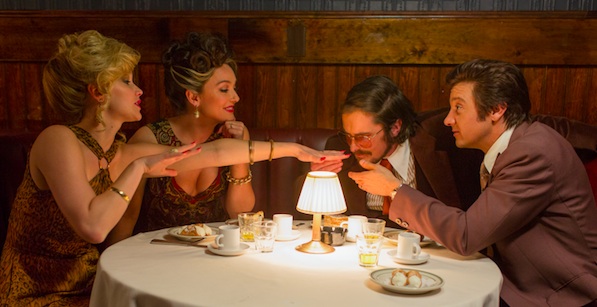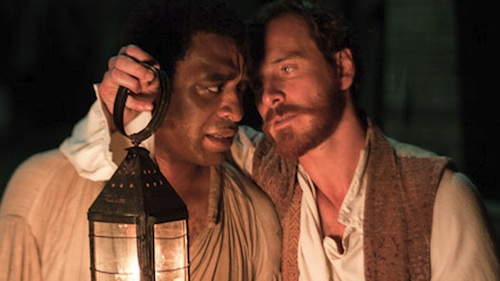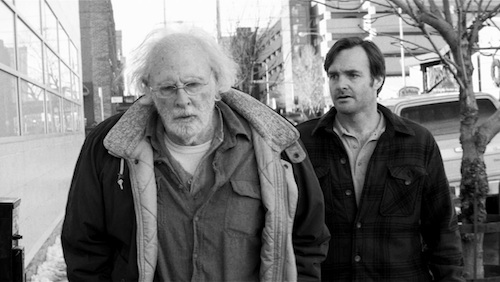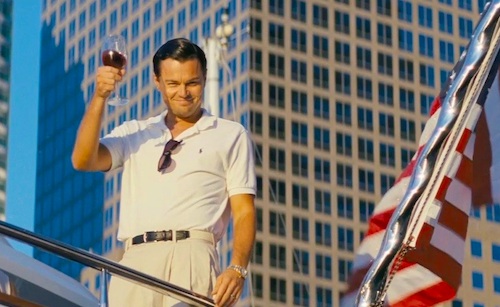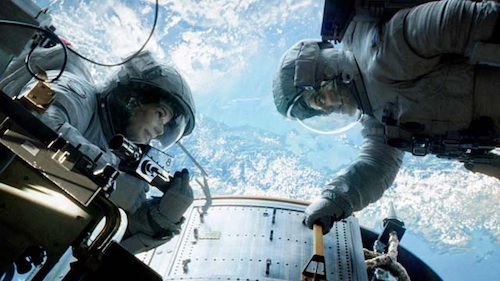Co-authored by Otie Wheeler.
[This is the sixth entry in “Video Evidence,” a series of video essays championing the most deserving Oscar nominees. For the full list of video essays, see the 2014 Oscars :Video Evidence main page.]
Let’s say it from the start: David O. Russell deserves to win Best Director for his work in American Hustle. To make the case, we’re pitting him head to head with each of his competitors, in the year’s ultimate directorial showdown.
Round 1: Russell vs. Steve McQueen, 12 Years a Slave
In 12 Years a Slave, Steve McQueen brings the horror of slavery to life, using a pictorial approach that confronts us with vivid sensory detail. It’s a powerful spectacle, but how much does it let us inside these characters? More often than not, they are flesh-and-blood models of atrocity, directed with clear moral bullet points underlined in bold. It’s a film that commands your respect, with an unwaveringly solemn tone that hushes you into submission.
In wild contrast, Russell’s tone is all over the map, but it’s a devil-may-care, go-for-broke intensity that casts respectability to the wind while searching for bigger payoffs. You see this in the outrageous costuming that calls attention to its artifice, starting with Christian Bale’s crazy wig routine. Russell isn’t just trying to dazzle you with surfaces. He’s inviting you into the charade to more fully explore the power of play acting.
Round 2: Russell vs. Alexander Payne, Nebraska
Alexander Payne has spent a career getting laughs by mocking easy targets, with a social satire that often feels condescending. But Nebraska may be the first feature where he seems to stand among his characters instead of above them. It’s a gentle film that finds pathos in the economic desolation of the Midwest, even as it pokes fun at it. As with McQueen, there’s a quiet, composed gravity to his technique.
Russell’s film feels a world away from Payne’s or McQueen’s; it’s fast, lively, intuitive, a reflection of its own creation. In behind-the-scenes footage, you see an urgency to Russell’s method, like a quarterback rushing downfield in a two-minute drill. It looks frantic, but it releases energies that Russell taps into. He locks in with his cast and crew, keeping them focused. He embraces messiness and uses it to reveal moments of spontaneous beauty.
Round 3: Russell vs. Martin Scorsese, The Wolf of Wall Street
There’s been a lot of back and forth between these sides. Russell fans say that he “out-Scorseses Scorsese,” while others dismiss American Hustle as a cheap and frivolous Scorsese knockoff. In The Wolf of Wall Street, the seventy-one-year-old Scorsese takes his familiar style to epic lengths, with an unflinching look at modern day hedonism in all its sensual thrills and empty promises. It’s provocative, go-for-broke filmmaking. But the rush of sensualism in this movie limits the depths of his characters, almost turning them into cartoons.
American Hustle is also about a bunch of professional con artists with cartoon qualities, but unlike Scorsese, Russell is able to find a soul inside them. If Russell adopts a Scorsese style, he does it to intensify the character conflicts underneath the flashy surface. Look at how the camera gives us brief snatches of how each person is experiencing this high-stakes moment. Russell’s style isn’t just for kicks. It creates a three dimensional space, mapping the distance between what we project into the world and the anxieties that lie underneath. It’s a space of emotions that’s always in motion.
Final Round: Russell vs. Alfonso Cuarón, Gravity
Cuarón is the odds-on favorite to win, with a game-changing work that opens up new approaches in cinematic storytelling. There’s no question that Gravity would not be possible without a singular vision to pioneer its way into new filmmaking territory. How can the director of a manic comedy possibly compete with that?
But American Hustle also embodies a complete directorial vision, in a way that’s perhaps less obvious, but possibly more profound. While Cuarón’s film is a stunning technical achievement, the central character is fairly two-dimensional. As someone whose sheer willpower gets her through impossible challenges, her saga is more like live sports than drama. In American Hustle, each A-list actor creates their own complex character, but they combine as facets of a four-way argument that Russell orchestrates with furious control. What is this argument? It’s something to do with the power of surfaces, lies and fakery, and what one does with that power. American Hustle is a fresh take on the American Dream in all its energy, seductive and dangerous. It’s the dream of self-invention, the dream of the movies. In that sense, Russell’s dream work might be both the most profoundly cinematic and the most profoundly personal among his peers.
Kevin B. Lee is a filmmaker, critic, video essayist and founding editor of Keyframe. He tweets as @alsolikelife.
Otie Wheeler works in professional broadcasting in western Massachusetts. He writes about movies for The Vulgar Cinema and contributes to The Notebook at MUBI. Follow him on Twitter.

